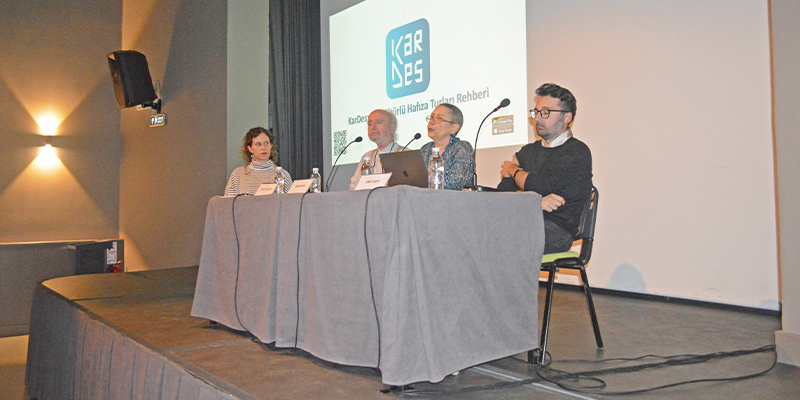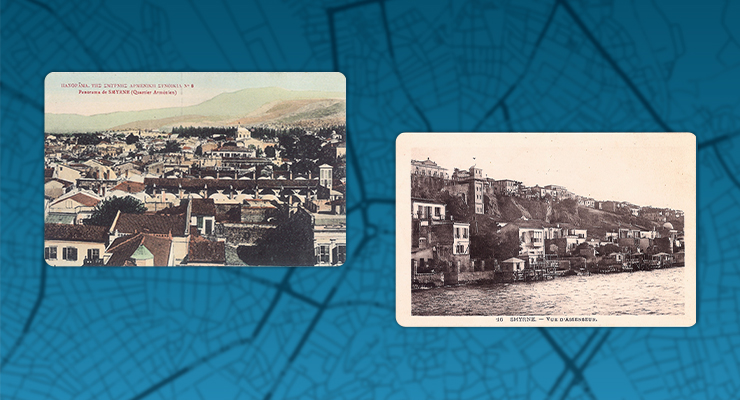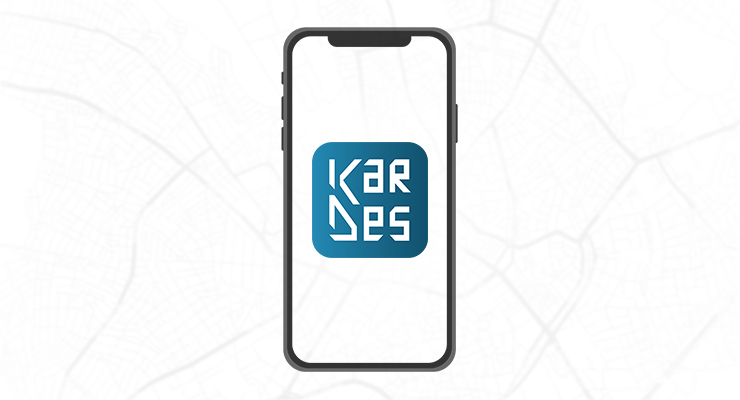KarDes mobile application developed by the Hrant Dink Foundation introduced its new memory tours for Izmir at a launching event held on Wednesday, November 22nd at the Institut Français in Izmir.
At the beginning of the event, Adom Şaşkal, Damla Barın and İpek Mayıs Oğuz from the KarDes team presented the KarDes mobile application and its Izmir activities. The presentation was followed by a panel discussion with historian and author Siren Bora, independent researcher Talât Ulusoy and Ümit Eser, lecturer in the history department of Necmettin Erbakan University.

The KarDes mobile app features six new memory tours in Izmir, covering the Armenian Quarter, Frank Quarter, Karataş, Kemeraltı, Quay and Punta neighborhoods. The texts of the new tours were narrated in Turkish by Emine Kolivar, Erdem Şenocak, Forti Barokas, Jaklin Çatal, Şerif Erol and Yeğya Akgün, and in English by Ayla Jean Yackley, Kevork Malikyan and Simon Johns. Izmir is the third city after Istanbul and Ankara to have memory tours in KarDes.
In addition to the memory tours, an inventory of Izmir's cultural heritage, including mosques, churches, synagogues, cem houses, monasteries, schools and cemeteries, is available on the Discover page of the app.
What is KarDes?
KarDes is a mobile application designed as a personal tour guide in Turkish and English languages for users who wish to discover the multicultural legacy and multilayered fabric of Istanbul, Ankara and Izmir.
KarDes, which aims to make visible unknown sites in well-known neighborhoods and allows their stories to be told, offers over 30 memory tours, each lasting an average of two hours and reveals the multicultural pasts of various areas. Users can access the alternative history narratives of cities with neighborhood tours and thematic tours consisting of selected stops on specific topics. With this application, KarDes users can discover a cultural inventory consisting of close to one thousand sites such as mosques, churches, synagogues, cem houses, schools, and cemeteries. As they walk along routes that make this multicultural legacy visible, they can hear hidden stories of the cities, told by well-known artists.
Aiming to make visible the urban and social memory which has been on the verge of extinction, KarDes offers excerpts from neighborhood talks and oral history interviews, providing the opportunity for users to listen to the stories of these neighborhoods and their transformations from the voices of residents. With around 70 oral history interviews, KarDes presents the stories of sites in various neighborhoods through a dynamic narrative.
Click to download KarDes: Multicultural Memory tours Guide mobile application for free.





